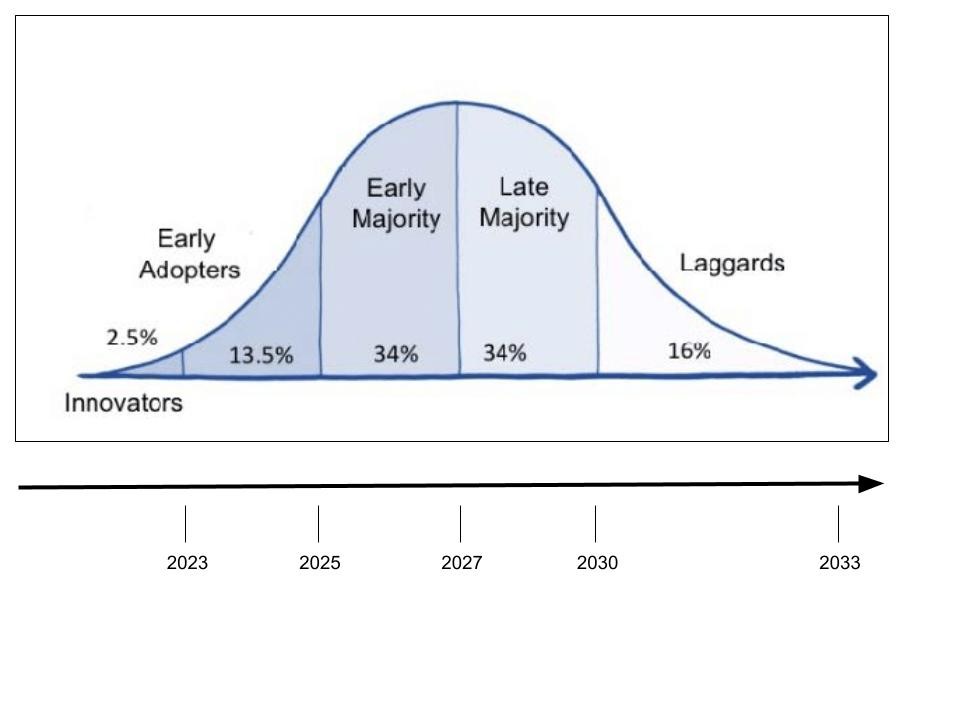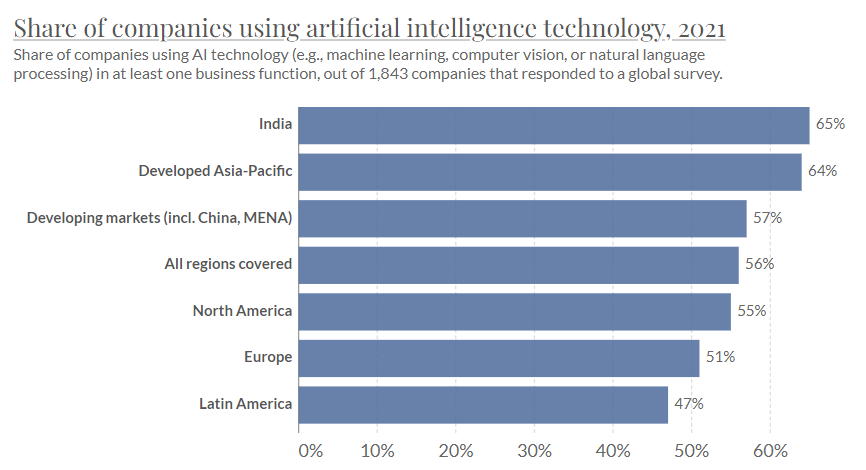Is AI A Threat To Jobs
Until recently AI has been slowly encroaching on jobs and although jobs have been replaced new jobs have also been created. The rate of accretion has not exceeded job creation, in fact the opposite is true. However, that does not mean this trend will necessarily continue. AI has brought about a revolution in health care, diagnosing cancer at very early stages, improving the safety of airlines, solving customer support issues, and so much more. But with the advent of tools like Chat GPT and Co Pilot etc many disciplines are simply not needed or at least in lower demand and this is a game changer. AI is now growing up not a steady rate but is taking seismic leaps in capability.

To answer the question do these technologies threaten your job, you have to answer the question will jobs be removed or conversely more or just different jobs created, but we will revert back to this discussion later. First we need to contemplate the effects from a macro national and global vista and also from a micro individual level. At a national level any single government won't legislate against AI nor AI companies, because of anti-competition laws and as it will place their country at a distinct competitive disadvantage compared to countries that haven't legislated against AI. Moreover, governments are always very slow to react, you only need to look at the inept reaction to the climate crisis to realise this. Governments would have to legislate at a global level to safeguard no single country has an advantage or disadvantage, in order to have any meaningful effect. Of course there is precedence demonstrating governments do legislate globally with good effect, however this will take time and until then AI companies will pursue their agenda and corollary a huge redistribution of wealth will result.
At an individual level, if you are 1 of the many people to lose their job, ask yourself what would you do. You would likely apply for a new job in the same profession, but if there are thousands of people applying for the same job, remember AI won't be just replacing your job, this will be happening wholesale, and where it used to be 10's or 100's applying you have a lower probability of finding a new job. So, after a year being unemployed you decide to aim for a lower salary. You might be lucky, but being unemployed for a long time you are less marketable. Many will simply remain in long term unemployment, or will try to switch to a different profession, but with less experience this won't be easy to switch. Faced with insurmountable economic hardship some may try to retaliate. We will investigate what form of retaliation is likely later. A huge skills gap will precipitate and governments will incur a huge drop in tax receipts and so front line services will receive less funding and be less equipped to provide adequate service. With increasing unemployment levels, huge reductions in public service funding and the biggest redistribution of wealth in living memory, the cauldron mix will be set for anarchy to overflow onto the streets.
Let's now revert back to the question will more jobs be created or will companies and owners simply get richer, or both scenarios play out, will companies follow a more moral agenda to protect jobs. Agenda's of companies are rarely governed by moral ideologies and have a propensity to follow whatever makes them more profitable, so it is skeptical that companies will be directed by any morality. Proponents for such AI technology say new jobs will be created, but the pace at which technology is changing people cannot continue to skill up and adapt to exponentially evolving technology. There will be a lull before the storm, for instance companies hiring software developers will for a time be re-positioned to projects that companies have on their wish lists which are still more akin to a human skill-sets than AI, such as fixing existing code defects, re-architect systems where decisions are based on highly complex factors. However, it is only a matter of time before such projects will peter out and companies that have procrastinated about using AI or delayed for good purpose will now be embracing it as the technology evolves. Now there are no legacy projects for the workforce and AI has removed the need for most of the workforce, inevitably the majority of the workforce become locked out of employment and it won't take long before people decide there is no point in competing with AI and their ambitions and dreams are annihilated. The fabric of society will be threatened, as previously mentioned many people will have no choice but to retaliate, but will this be against the governments, AI or both. The events that may supplant in many ways correlate with historical events when workers sabotaged the workplace back in the 1800's. Workers went on strike asking for an increase in their salaries but were instead replaced by less experienced workers nicknamed "sabots", but the new workforce were not as competent or hard working, so the more experienced workers decided to end strike action, go back to work on the same salary, but refused to work as hard as they used to ( this was the origin of the word "sabotage" ). Workers today may attempt to sabotage AI and the only way possible would be to take away the lifeblood of AI, which is the data; people may literally resort to sabotaging the internet, flooding the internet with fake news and inaccurate information. This no doubt will happen, however, will be futile. AI is already becoming adept at identifying fake news and will only get better. Sure, the saboteurs will get smarter, but the effect will be throwing a small pebble into the Atlantic ocean, for sure ripples will occur but not enough to effect the size of an ocean. Therefore, the growing masses of highly educated unemployed that used to command well paid jobs, software programmers, architects and engineers in most forms, researchers, accountants, logistical related jobs, data entry and scientists, copywriters, customer service and many more inevitably will retaliate against governments and headquarters of big tech companies that are at the root of inflicting hardship felt by millions.
You must be asking yourself when is this going to happen, 30 years from now? No 20? Wrong again. The technology has arrived, of course the early adopters will embrace the technology first and usually it takes a few years before the bulk of the market to follow the early adopters.

So my guess is the effects will begin now, but it won't be until 3 to 7 years, in the year 2026 at the earliest when the snowball morphs into an avalanche.

The above shows that companies are already rapidly adopting AI but has not fully permeated most business functions but this is only a matter of time before this happens.
If this prediction becomes real you will start to see growing unemployment across the major economies over the next 2 years, slowly growing until Early and Late Majority companies use AI as the largest denominator technology. Companies and possibly governments will purport job loses on other reasons than AI, but this will be the true cause.
If governments don't react now AI poses the most existential threat to society, more so probably than climate change. We have a chance to embrace the brilliance that AI is already delivering whilst simultaneously protecting jobs, our public services and averting public unrest on a global scale.